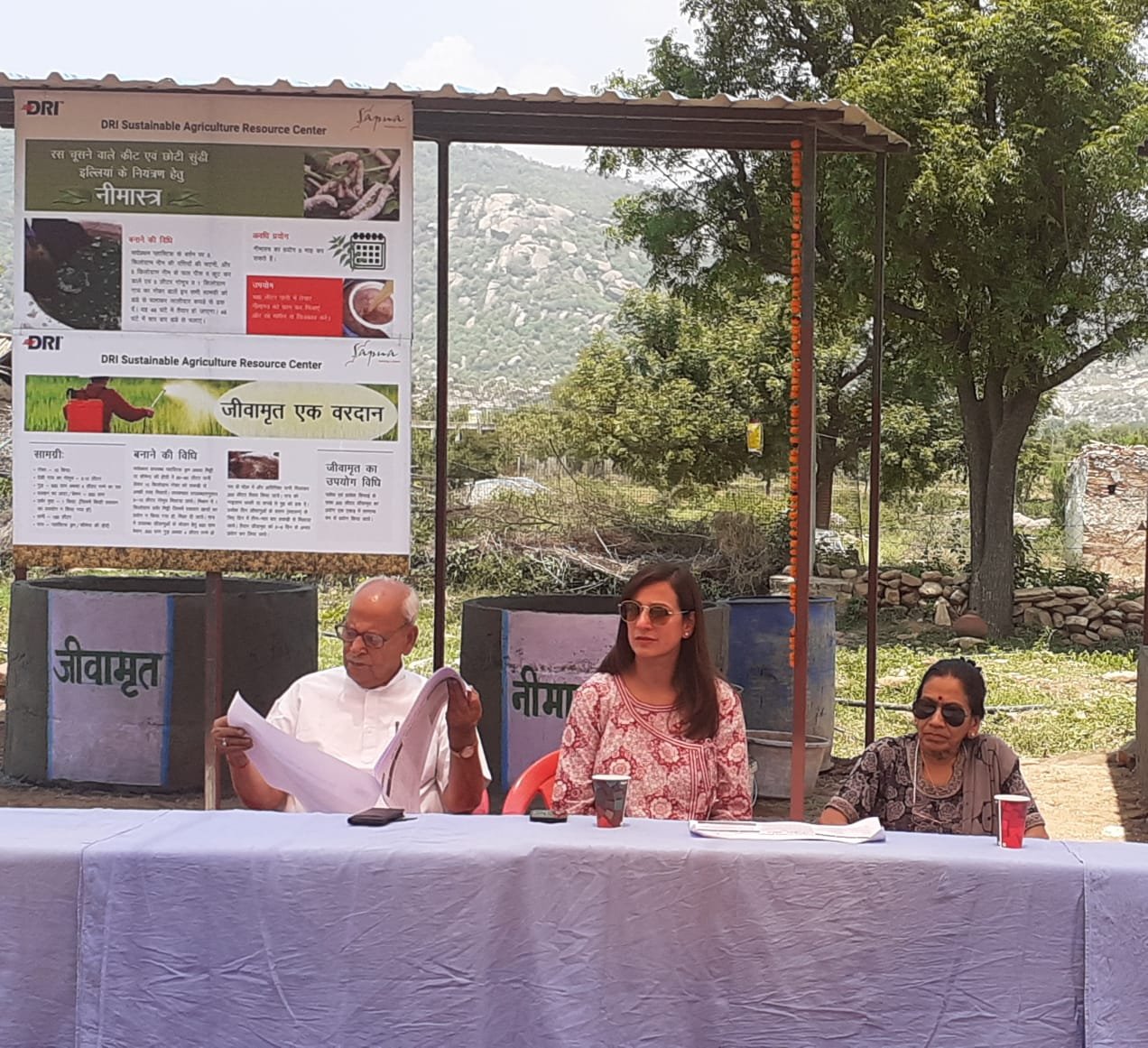Wednesday, 25 February 2026

The objective of this centre is to promote sustainable and environment-friendly agricultural practices and improve soil health and fertility through natural methods
DRI, the flagship company of Pahwa Group, inaugurates the DRI Sustainable Agriculture Resource Centre at Dadhikar village in Alwar, Rajasthan, in partnership with the Sapna NGO. With an aim to provide benefits to the farmers, the centre was inaugurated on the occasion of World Environment Day Anandita Pahwa, Head-CSR Initiatives, Pahwa Group, in the presence of Jagdish Prasad Sharma, Assistant Agriculture Officer, Alwar; Sudhir Pratap Singh, General Secretary and Prof. Ranvir Singh, Secretary, Sapna NGO. Many of the farmers from the Dadhikar village were also present for the inauguration.
The objective of this centre is to promote sustainable and environment-friendly agricultural practices and improve soil health and fertility through natural methods. Benefiting more than 150 farmers in the area, this project will lead to increased access to organic, healthy and chemical-free food for the local community, along with providing training and support to farmers & villagers transitioning to organic farming methods. Initially, four types of organic khad will be made and distributed to the villagers from the new centre, namely Neemastra, Jivamrit, Vermi Compost and Rapid Compost.
This centre is aimed at generating awareness about organic farming and increasing the productivity of the crop. The long-term impact of this project will be to eliminate the use of synthetic inputs, such as synthetic fertilisers and pesticides, genetically modified seeds and breeds, preservatives, additives and irradiation. These will be replaced by site-specific management practices that maintain and increase long-term soil fertility and prevent pests and diseases.
The Center will also be used as a Farmer Training and Capacity Building centre, where the company plans to conduct workshops and training sessions on organic farming techniques. It will also provide education on soil management, composting, natural pest control, and crop rotation, and demonstrate different organic techniques suitable for the local conditions.